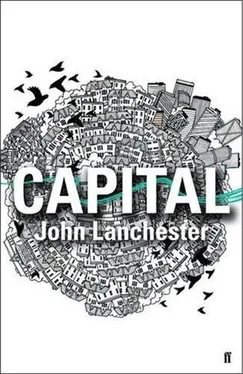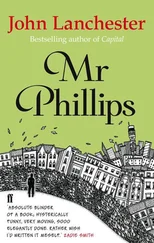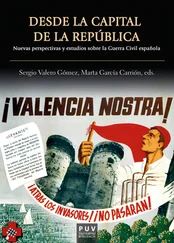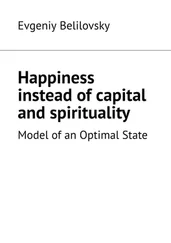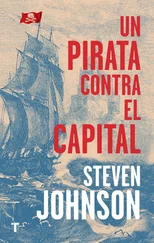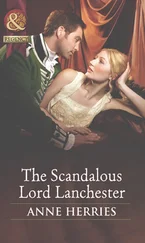‘Not quite,’ said Alan, beginning to recover. He went over to the table where they kept the spirits and poured himself a gigantic Scotch, half of which he drank at a swallow. ‘Christ. You gave me a hell of a turn. I don’t think I’ve ever seen that much cash in one go. Anyway, you’re half right. You can’t just take them somewhere and spend them. That tenner was withdrawn in the early nineties and it’s not legal tender any more. But the Bank of England still has to honour it.’
‘So we take it to the Bank of England. I can really imagine that, can’t you?’ Mary would wear a little hat and maybe a fur coat and would plonk the bag down on the counter and then pop it open to see their expressions change.
Alan drank the rest of his Scotch and poured a refill.
‘What happens is, you can’t use it yourself, but once the Bank’s issued it it’s still valid, always and for ever. The trouble is, a lot of the time, if there’s a fair bit of money, they want to know where it’s come from. So they ask lots of questions, income tax, inheritance tax, all that, and if you can’t show that it’s all legit, they investigate you, and the next thing you know they’re claiming tax plus fines. The fines can be up to a hundred per cent of the full amount. And then there’s lawyers’ and accountants’ fees to pay, and most of the time you end up with hardly any of the money left.’
‘So it is waste paper after all, more or less,’ said Mary.
‘Give or take maybe a hundred grand.’ Alan finished his second whisky and started to pour himself another. Then he thought better of it and came across to Mary and gave her one of his super-powerful, rib-cracking hugs.
‘You all right?’ he said.
‘I’m glad my mother never knew,’ said Mary. ‘She’d have killed him.’
At number 27 Pepys Road, Patrick and Freddy Kamo were both loafing around, killing time, waiting for Mickey Lipton-Miller to call or to visit to report on what was supposed to be the conclusive meeting with the insurance company. This was meant to be It – the final offer. The settlement. The meeting had begun late the previous afternoon and Mickey had said that he would either call before nine in the evening or first thing the next day. Father and son had woken up early, waiting to hear from the agent, and now didn’t quite know what to do with themselves. Freddy had a go at Halo 2 , but it didn’t take, and now he had put a CD of Fela Kuti on and was sitting at the table jiggling his legs, not really listening to the music. Patrick had been out to the newsagent and bought a newspaper, but found he couldn’t read it. The combination of fatigue, worry, and the English language made the letters dance on the page, failing to resolve into words whose meaning he could understand. He could ring home – Adede and the girls would certainly be up already – but that would be such an unsettled, anxious-seeming thing to do that it would make Freddy even more uncomfortable. So there was nothing to do except trust Mickey to be in touch as soon as he could.
It had been two months of misery for both of them – though the misery was of different sorts. For Freddy it was primarily physical. He had had the second, major operation on his knee. It went well, according to the surgeon – the senior and most pessimistic of the three specialists – but convalescence was still drawn-out and painful and boring. Freddy’s exercise regime was much duller and much more repetitive than training for football had ever been. He did not feel in full control of his body, and hated that. The whole process was a physical sinking-in of the reality he was facing: his injury might never get better, he might never be the same again, his life in football was almost certainly over. The thing he lived to do, he wasn’t going to be able to do any more. Freddy was not prone to depression, but even he sometimes felt that what had happened to him was a form of death sentence.
Patrick’s misery was in his head rather than in his body. He was possessed by a sense that, in addition to everything that had already gone wrong, yet more would go wrong: the insurance company would find what they were so clearly looking for, a loophole to avoid paying out, and yet Freddy would also be unable to play football again, so they would lose out in every way: no insurance, no livelihood and no chance for Freddy to do the thing he loved. They had come to London full of hope and would be leaving it stripped bare. The only thing left to them would be going home – but that, to Patrick, was a consolation so large that it too was now becoming a kind of torment. Home, Africa, Senegal, Linguère, their house, their bed, waking up next to Adede, the weight of his daughters when they jumped up on him and demanded a hug, an evening in the police bar with his old colleagues, the food that actually tasted of something, the bite of cold beer on a hot night, the sweat on the bottle rolled over your forehead, the sense of being known in a place you knew; that you were taking up your allotted space on the earth. Speaking your own language, all day. Home. All of it – home.
Both Kamos twitched at the noise of a key in the lock. Mickey did what he always did, which was to put the key in, turn it and open the door an inch, then ring the doorbell to announce his presence, then come in. Well, it was his house – which was presumably the unconscious point. He came bouncing in, which with another man would have been a good omen, except Mickey on purpose kept his energy levels high when he had bad news, as a way of being hard to read.
‘Sorry I couldn’t call last night. We went on a bit after ten and I didn’t want to break our arrangement. And anyway, I wanted to tell you in person. So here I am,’ said Mickey. He knew Patrick wouldn’t think to offer him a cup of tea – he was hospitable, but sweetly, laughably bad at things he was used to thinking of as female work. So Mickey just sat down at the table and dumped his briefcase down on it, looking across at the two Kamo men. They were grey with anticipation.
‘Ready?’ said Mickey. They nodded. ‘OK. Here it is. The good news is that the insurers are offering to honour the value of the contract. They were legally obliged to do that, since that’s what’s being insured, but you know what they’re like. So that promises a single payment of five million pounds, tax-free both here and in Senegal.’
‘Five million pounds,’ said Patrick. He looked at Freddy, who showed nothing.
‘Five million pounds,’ said Mickey. ‘Which is the good news. Bad news, or any rate less good, is that there are certain conditions. Which we knew there would be, but still. The main one they asked for is that Freddy is not allowed to play football again. Ever.’
‘Never,’ said Freddy. ‘Not with friends?’
Smiling a little, Mickey said, ‘No, they can’t stop you having a kick-about with your mates. What they mean is, playing any kind of football for which you get paid. Or representative football for that matter, where you can earn money from image rights or sponsorships or whatever.’
‘Never,’ said Freddy.
‘Yes. As I say, that’s what they wanted. That’s what we were arguing about. And that’s why the bad news isn’t entirely bad news, pure and simple – because it turns out, I won’t lie to you, to my surprise, they were more imaginative than I thought. They saw the point. The deal we ended up with, finally, is that Freddy can’t play football anywhere in Europe or the Americas or Asia. But he can play in Senegal. He can run out on a football field again. If he gets in the national team or something and there’s sponsorship rights, they might want some of that money. But anyway, that’s the headline news. No football in Europe, but he can play in the league at home.’
Читать дальше
